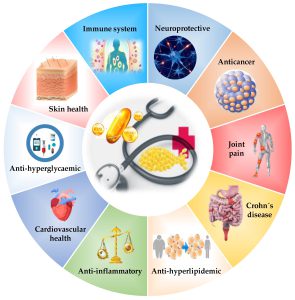By : Shaghayegh Sobooti Hashemi
There are different types of Anxiety: panic disorder, obsessive compulsive disorder, social anxiety disorder, separation anxiety, post-traumatic stress disorder and specific phobia. They are all categorized as psychological disorders and the individual experiencing each of the above needs to seek help from a psychologist. Studies in this field have not yet proven a main cause for any of these disorders, but genes and environmental factors can be influential. One of the environmental causes that plays an important role in controlling or causing anxiety is nutrition and diet.
If you regularly experience stress and anxiety and your irritability threshold is low as well, we advise you to do a blood test to check the iron, zinc and other vitamins and minerals levels in your blood, as well as some hormones. Health specialists also advise you to go over your diet to make sure what you eat is helpful to maintain your mental health. Anxious people might have iron, B group vitamins or D3 deficiency. B group vitamins, especially B12-B1-B9, helps stress relief and increases irritability threshold through the effect it has on the central nervous system (CNS). Food which are sources of this group of vitamins are: rice, whole grain bread, meat and vegetables.
 |
Lack of Iron causes iron deficiency anemia, irritability and restless leg syndrome. Before menopause, women should be checked annually for iron deficiency anemia and the level of body iron reserves (ferritin). Magnesium deficiency in people can also cause stress and anxiety. Magnesium deficiency is very common in people who do not consume vegetables because vegetables are rich in magnesium. Symptoms of magnesium deficiency include muscle weakness and body fatigue.
Vitamin D’s role in the nervous system is to help people to relax and stay calm. In many cases, depression can be caused by vitamin D deficiency. Among the main forms of vitamin D, we can mention Vitamin D3 and D2, both of which can be made by the body in the presence of sunlight. Noon is the best time for the body to make vitamin D because the sun is at its highest and your body has the chance to make the best of it. This means its less likely for the body to produce vitamin D from the afternoon sunlight. The time required to make enough vitamin D3 in the skin is 15 minutes, 3 times a week. But if a direct contact between the sun and the skin is not possible, you must take vitamin D supplements along with food sources that contain vitamin D. Oily fish such as salmon, liver, and egg yolk are known as rich source of vitamin D.
Eliminate coffee and caffeinated drinks such as energy drinks from your diet or consume them in small amounts. Eliminating coffee from the diet should be done gradually within 7 days so that coffee withdrawal symptoms such as headaches do not occur in people. Alternatives to caffeinated drinks include relaxing teas and green tea because green tea contains theanine amino acid, which causes relaxation. Long-term hunger and skipping meals and snacks cause a drop in sugar level of the blood, and this drop in sugar usually causes anxiety for many people.
Anxious people tend to consume sweets and chocolate because sweet substances increase the secretion of serotonin hormone and this hormone is known as the uplifting hormone, but the effect of these sweet substances is short-term! Nuts (especially walnuts, raisins and almonds) are a good substitute for sweets and chocolate. One of the main body parts that produce serotonin for humans is their intestines, so a healthy digestive system plays an important role in controlling stress for us. Probiotic bacteria play an important role to keep our intestines healthy. Probiotics are useful intestinal bacteria, if the amount of this bacteria is not balanced it can cause anxiety and depression in people. Stress and anxiety itself can be the reason for imbalanced probiotics. The main source of probiotics is dairy products. Those containing probiotics are: kefir, yogurt, buttermilk. We must pay attention to the fact that heat destroys probiotics! Therefore, never put yogurt on your hot food.
What kind of diet makes us sleep better?
Sleep disorder is very common, it disrupts the natural circadian rhythm, which negatively affects both our mental and physical health. There are different types of sleep disorders, among which we can mention insomnia, obstructive sleep apnea and circadian rhythm disorders. Sleep disorders are not only associated with reduced quality of life and work efficiency, but also with increased medical and psychiatric problems. It is considered a risk factor for many diseases, including cardiovascular events, high blood pressure, and type 2 diabetes. Having a healthy sleep cycle for children is very critical for their physiological and psychological health as well as their cognitive development and behaviors. Dietary components can directly affect sleep. For example, the caffeine in caffeinated coffee or tea reduces the total sleep time and quality, as well as increasing the sleep induction time.
Melatonin is known as a sleep inducer that transmits information about the daily cycle of light and dark to the body, so foods containing melatonin can directly affect sleep. Food sources that increase melatonin stimulation include pineapple, corn, grapes, and cherries.
Amino acid tryptophan is a precursor of compounds that relaxes the brain and makes you feel energetic. Tryptophan is a substrate (precursor) of serotonin. Serotonin is a major sleep mediator that first promotes wakefulness but then promotes NREM sleep. Taking tryptophan supplements (1 gram or more) increases mental sleepiness and decreases sleep time, especially in people with mild insomnia. One of the main sources of the amino acid tryptophan is milk, for this reason it is recommended to drink a glass of milk before going to sleep. Turkey, spinach, soy, tofu are also rich sources of tryptophan.
GABA-aminobutyric acid is a bioactive amino acid which does not form protein with this amino acid but it induces sleep in people. Consuming simple sugars and refined grains cause insomnia in people. Foods rich in fiber such as vegetables, legumes and fruits improve sleep and reduce insomnia.
Saturated fat intake is a major risk factor for cardiovascular disease and diabetes. Animal fat, processed foods, hydrogenated oils are considered saturated fatty acids. Excessive consumption of saturated fatty acids during the day is associated with shorter sleep duration and reduces sleep quality. Diabetes can be caused by excessive and long-term consumption of saturated fats, and diabetes is often associated with sleep problems! Omega- 3 fatty acids are a type of polyunsaturated fatty acid that are essential for brain development. This type of fatty acid reduces inflammation in the body and thus reduces many chronic diseases. Omega 3 affects the rhythm of the melatonin hormone and the circadian clock function, so a diet with Omega 3 deficiency disrupts the circadian sleep. Omega 3 food sources include fatty fish, flax seeds, and walnuts. DHA is a type of omega- 3 fatty acid that increases the duration of night sleep and earlier sleep for children and teenagers. Food known as Omega 3 source are: salmon, fish oil and oysters. Vitamin D deficiency is associated with a higher risk of sleep disorders, including poor sleep quality, short sleep duration disorders, including poor sleep quality, short sleep duration which leads to an all day sleepiness, where efficient level of vitamin D would lead to better sleep by reducing inflammation and oxidative stress.So, keep Calm and watch your diet for a better life performance!
It is also worth it to read about skin care routines here:
Why Men Should Jump on the Skincare Bandwagon





